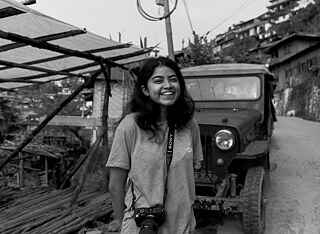Sanskriti Bist
bangaloREsident-Expanded @Lichtenberg Studios

Growing up as a third culture kid, she has been fortunate to experience life in various countries, and has developed a deep appreciation for the role of food, understanding different cultures and building connections through a shared love of eating. She has had the privilege of documenting her love for storytelling for socially-themed curated menus for pop-up events, publishing her regional recipes and photos in cookbooks, magazines, and various newspapers.
About the project:
During her stay at Lichtenberg Studios, Sanskriti will focus on developing her storytelling skills and gaining a well-rounded, international perspective on how food narratives change in different geo-political climates. Berlin has witnessed significant political changes, from the fall of the Wall to the process of reunification. Sanskriti is particularly intrigued by how these transformations have impacted the food culture and collective memory of Berlin's inhabitants. She firmly believes that food is inherently political.
Through her preliminary research, Sanskriti came across the fact that the west side of the wall was predominantly populated by people of Turkish origin, while the east side was home to Vietnamese communities. The division of the city via the wall led to the emergence of a culture centered around affordable fast food in the east, shaped by poverty and limited resources. Sanskriti would like to uncover the untold stories that arise from these cultural and geographical shifts, particularly within migrant communities and the intimate spaces of home kitchens. Through her camera lens, she aims to understand the dynamics between the public and private culinary spheres, emphasising the differences and commonalities that exist.
Food knows no borders. It is a universal language of commensality that has the power to foster connections and bridge differences and hierarchies. She believes that food plays a crucial role in forging affinities and building understanding among diverse communities.